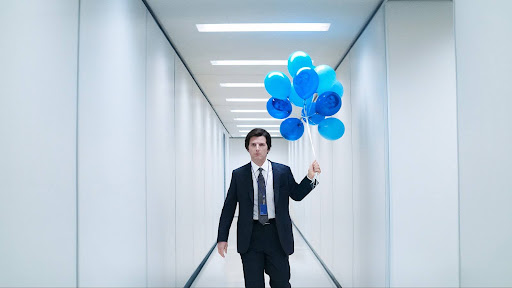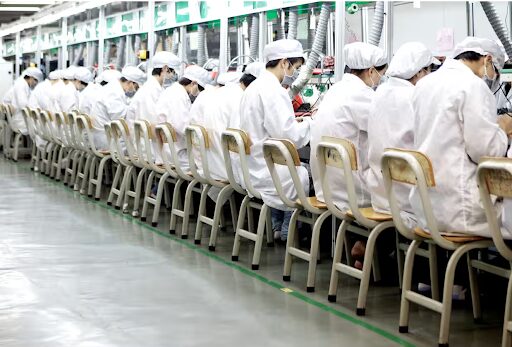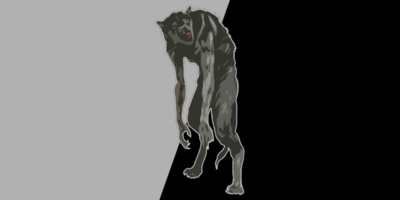Below is a re-published piece from MGRM Co-Owner Carter Moon‘s Substack! He writes about politics, pop culture, and yes, heavy metal. We encourage you to subscribe to his Substack here!
We spend most of our lives at work. It’s pretty easy to let yourself go into an existential spiral over this; we only have a limited time on this Earth and most of us spend our waking lives performing tasks we wouldn’t really choose to do if we didn’t need to pay for housing and food. The pandemic radically shifted people’s relationship to work; essential workers were confronted with the harsh reality that their bosses were willing to sacrifice their safety in order to keep the wheels turning and office workers suddenly working remotely realized how much of their lives had been consumed with commuting and needless, performative affectations in an office.
There has unfortunately been a fairly sharp but understandable division between the people who kept working through the pandemic and those who were able to shelter at home. Elon Musk has been particularly odious about exploiting this division, excoriating the “laptop class” for working from home and suing the state of California for not letting him force his Tesla workers to risk their lives in his factories. But there’s also been glimmers of class consciousness and solidarity that have emerged from the existential chaos of the pandemic; I am constantly in awe of the success of the Starbucks Workers United drive to unionize Starbucks, something unions had long thought was impossible.
I don’t think it’s an accident that TV shows about working have taken the cultural consciousness by storm since the pandemic. I particularly think SEVERANCE and THE PITT have tapped into deep feelings of alienation and exploitation that we’ve all been grappling with over the last five years. On their faces these are very different shows: SEVERANCE is a cerebral, abstract sci-fi show and THE PITT is a hyper-real medical drama, but both shows are fundamentally about not being able to escape work. SEVERANCE centers around characters who have willingly allowed a company called Lumon to insert a chip in their brains that causes them to become a blank slate office worker with no knowledge or awareness of who they are outside of the office. THE PITT is a real-time drama about a team of ER doctors and nurses trying to triage patients across one brutal 15-hour shift. Both shows center around clinical, artificial workplaces where the characters rarely stray outside of their built environment and the fluorescent lights never shut off. No matter how desperately they want to extract themselves, they are chained to their roles.

In SEVERANCE, the main drama centers around how the severed characters’ personalities inside the office (the “innies”) struggle to form a sense of identity and autonomy. The work that they perform is described as “important and mysterious,” but in reality it involves them staring at a computer terminal and dragging seemingly random groupings of numbers into buckets based on vague emotional responses they have as they highlight the numbers. They have no idea what the numbers represent and as they stray deeper into their office they discover severed people in other departments who are doing work that appears to be wholly unrelated to what they do.
It is maybe the best depiction of the Marxist concept of alienation that I’ve ever seen in popular media. Alienation can be defined by the understanding that “since wage workers sell their labor power to earn a living, and the capitalist owns the labor process, the product of the workers’ labor is in a very real sense alien to the worker. It is not her product but the product of the capitalist.” This alienation is both a material reality—the product you produce doesn’t belong to you and the profits it generates don’t either—but it’s also a psychological experience, which SEVERANCE understands all too well. The innies’ entire concept of life is defined by what they experience inside the confines of the office and it uniformly tears at their psyche as they struggle to stake out a sense of identity and agency in a ruthless environment that denies them any. What’s particularly fascinating about the show is how it demonstrates that the middle managers who oversee and control the innies are also alienated, subject to an opaque bureaucracy called the Board who they can’t speak to directly, sending cryptic edicts back to them and punishing them mercilessly when they fall even a little out of line.
I believe a key factor of the show’s popularity is how it’s shown many office workers that they are also alienated and exploited in their workplace. Just because we go into an office and perform mental labor rather than physical labor, we are still subject to alienation from the product of our labor, our behavior in the workplace tightly controlled. The show is also extremely effective at demonstrating how people can be conscripted into doing something horrific; both the severed people working in the office and the middle managers routinely do awful things, but are made to believe they have no choice due to the restrictions of their environment. They are rendered the ideal workers for capitalists because they truly do not have a sense of free will or morality with no other contexts for their lives. They are trapped in a static, never-ending present, with seemingly no power to alter their surroundings.

Of course, one of the great ironies of SEVERANCE is that it is a critique of an all-powerful corporate monopoly who rigidly controls their workers and the show is produced by Apple. Foxconn, the Chinese subcontractor which produces iPhones for Apple, is a brutal and highly secretive company where workers live on the factory grounds and work such demanding hours that they routinely attempt suicide. Images from the sterile factories, always open and always brightly illuminated by fluorescents, are eerily reminiscent of the Lumon offices. Even more directly, the end of the first season of SEVERANCE culminates in a glitzy corporate PR launch for Lumon’s severed technology, the style of the glossy promotional videos almost identical to the images you’d see in an Apple store. Of course, the executives at Apple are almost certainly self-aware enough to understand this. They know that allowing themselves to be critiqued allows them to appear to be magnanimous and open to change, and they know that funding a show like this will ultimately let people feel better about buying new iPhones, which is what they really want. One of the most frustrating parts of confronting capital is how well it can absorb critique and appear to reform without the material relationship between workers and the bosses actually changing.
—
Now let’s turn to THE PITT is about medical staff who cannot escape the nightmare playing out in front of them hour by hour. The entire show takes place on the ER floor of a hospital; the most we ever get a glimpse of the outside world is just at the ambulance bay as more patients roll in. It is an extremely satisfying show in many ways: You watch medical professionals execute harrowing medical procedures with unbelievable precision. But in between the everyday miracles, the staff are baraged by angry patients who can’t get the care they need and an administrator who expects them to deliver better quality care while keeping them ruthlessly understaffed. The characters may not be able to escape into the outside world, but the tsunami of social problems constantly floods their emergency room. Additionally, the staff are still reeling from the trauma of working on the ER floor during COVID; it becomes plainly obvious that the scars they’re carrying from the pandemic are still threatening to push them to their breaking point.
One of the best moments in THE PITT comes when the lead attending doctor, Dr. Robinavitch, has to send two of his doctors home early. Both are dealing with personal crises, but they feel an almost spiritual guilt about abandoning their shift before it’s time. Similarly, as SEVERANCE progresses, characters routinely try to leave the work for good, but a complex array of factors continually pulls them back in. Post-pandemic, we saw constant breathless stories about “the great resignation,” people leaving their unsatisfying jobs, nurses, in particular, fleeing after being so mistreated. And yet, inevitably, we all went back to work. As pandemic savings ran out, as our rents went back up, we have all found ourselves grinding it out at work again. Even if the work we do is vitally important, as it is on THE PITT, the suffocating sense that work is all there is at the core of our beings has weighed on all of our psyches for the last few years.
One of the things that makes SEVERANCE so haunting is the thought of how little life is left to the main characters. Between losing eight hours a day to work they can’t remember and eight hours to sleep, there is very little left of their personal lives. Of course, this is true for most of us as well, even if we can remember all the life we experienced at work. THE PITT is crammed with moments of life and humanity; the doctors can’t avoid their lives coming with them to work, no matter how hard they try to maintain a mask of professionalism. Similarly, as much as work is miserable, the ability to remember the funny conversation you had with a co-worker or the heartfelt interaction you had with a customer is part of what makes life worth it. Denying yourself that, allowing yourself to truly become alienated from your own life to such an extreme degree, is exactly why SEVERANCE has resonated so deeply.
The bosses have tried very hard to discipline all of us since the pandemic. They have tried to make us forget what it felt like to actually have a social safety net and strong eviction protections. They’ve tried to make us accept our wages continuing to stagnate even as our productivity has skyrocketed and inflation soars. They want us to forget that we are actually the people who make the world turn. Shows like SEVERANCE and THE PITT so powerfully remind us that we are, in fact, the people with power. In SEVERANCE, as much as the corporate apparatus tries to make the characters feel insignificant, it is driven into a panic when they unite and begin to refuse to keep working. THE PITT shows us on a visceral level how society would collapse without medical professionals showing up to work, that some labor transcends being reduced to simple market exchanges, its value greater than the profits it can directly generate for the ownership class. Those of us who sell our labor have power; we are the people who keep the wheels turning and we are capable of strategically uniting to build a better world.
I was extremely moved by Mel Beur’s reporting on the massive march led by the United Farm Workers on Cesar Chavez Day. In defiance of Trump’s vicious attacks on migrant workers, this brave union of farmworkers was joined by unions from across the state for a march of thousands and thousands of workers to demand the attacks on both immigrant workers and government employees end. This kind of solidarity, this kind of coordination across vastly different sectors of employment, is how we beat fascism. We have to break through the barriers separating the laptop class from essential workers. All of us are trapped in this purgatory together and we have a duty to overcome our differences and stand shoulder to shoulder with each other. Shows like SEVERANCE and THE PITT are more than simple entertainment: They reflect a truth we know back to us and give us the fuel to imagine something greater. Let’s do what must be done.
















Comments